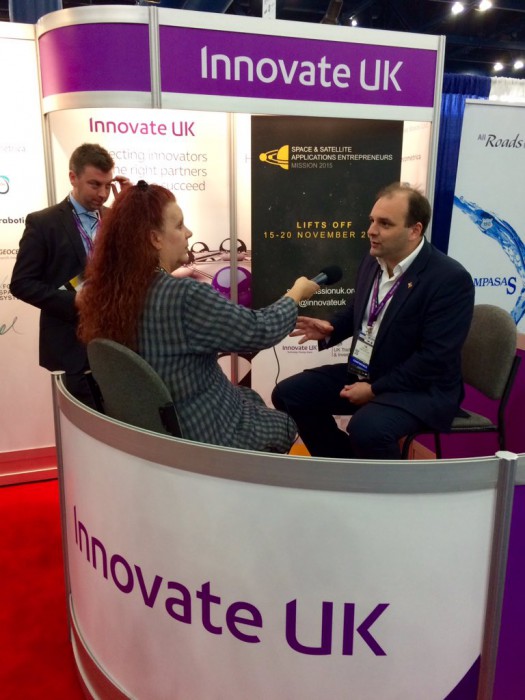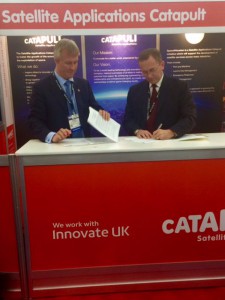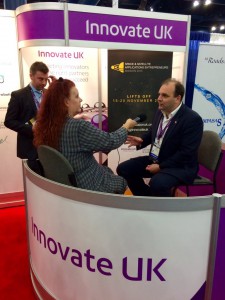11th January 2016 Houston, USA
BLOG: A Space Blogyssey Part 3

This blog is the final blog in a three-part series on the UK Space Sector. (A Space Blogyssey Pt. 1 & A Space Blogyssy Pt. 2)
It is hard to believe that we are almost 60 years away from the first age of space exploration, marked by the launch of Sputnik in 1957. As the first satellite to be launched into lower earth orbit, Sputnik serves as a grand representation of the first 50 years of the first age space exploration where government served as the primary funding and innovating body for the high-risk, high-cost space industry.
In the late 2000s, the funding model changed, and we entered into the second space age. Big business, such as SpaceX and Virgin Galactic, pledged to enter the market and opened space up to private funding that would support future human exploration and possible colonization.

In 2015, as we enter the third space age, we are witnessing yet another shift in the funding model. Today, space is no longer seen as a high-investment, high-risk adventure. As a low-investment, low-risk environment, the industry has created a “space” for start-up companies and small-medium enterprises to “take off”. Because of this, innovation is being approached in new and novel ways, and as Stuart Martin, Satellite Applications Catapult CEO, says, “you no longer have to be an expert in space to take advantage of it.” The technology, already available in the space toolbox, is capable of solving a variety of current issues in a large range of industries.
The Satellite Applications Catapult, based in Harwell, UK (and planning to set up an office within the Spaceport Houston in Texas, USA), proves exactly what Stuart Martin assures is true, expertise in space is not needed in order to take advantage of the technology it offers. The Catapult proves the space industry is primed to assist others in new and novel ways through new applications of current technologies. By applying space technologies in new and novel ways, the Catapult utilizes proven models to support ocean sustainability, emergency services, city planning, and even halt the spread of disease. Simply put, the Catapult develops industry solutions utilizing satellite technology as a competitive advantage, driving the third space revolution.
This UK expertise was on display during the inaugural Space Commerce Conference and Exposition (better known as SpaceCom) which took place 17-19 November 2015. During the conference, the Science and Innovation Network had the pleasure of supporting two delegations from the UK footed in new applications for satellite technologies.
Touting an attendance of over 1300, SpaceCom quickly elevated itself to be the premier space commercialization conference in the U.S, and was a prime landscape for the 7 UK small-medium enterprises (SMEs, also known as start-up companies) on the delegation to network, display their novel applications, garner investment, and prime their technologies to flourish within the current industry landscape in the U.S.A.

The delegations represented the second of two missions funded by Innovate UK in 2015 to promote and support the expansive expertise and leading innovation coming out of the UK (the birthplace of over 40% of all small satellites) for greater economic prosperity. Companies engaged in this delegation primarily specialized in downstream applications of satellite technologies in agriculture, maritime and oil/gas.
Despite the wide variety of UK companies and organizations descending upon the SpaceCom Expo, a key mission rings true for all; inspire innovation for a better world, empowered by satellite technologies. As we continue to move through the third Space Age, continue to look towards the UK as industry leaders.
Read more about the UK Companies in Houston for the SpaceCom Expo:
Dr. Marcell Tessenyi, CEO – Blue Skies Space Ltd.
Sarah Midlemiss, Space Programme Administrator – Ecometrica
Kim Partington, CEO – Geocento
Philip Briscoe, Director – Rezatec
Gareth Morgan, CEO – Terrabotics
Mike Lawton, CEO – Oxford Space Systems
Joyeeta Das, CEO – Gyana